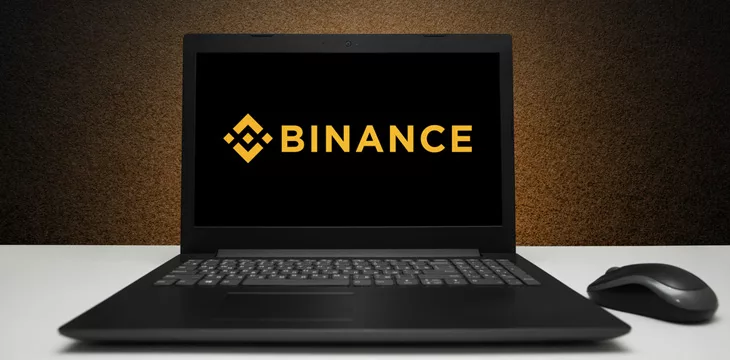|
Getting your Trinity Audio player ready...
|
The U.S. Securities and Exchange Commission (SEC) has filed its response to Binance’s motion to dismiss the regulator’s lawsuit against it. The SEC rejected the various arguments made by Binance, stating that “no court has adopted Defendants’ tortured interpretation of the law. To the contrary, courts have consistently rejected it, and this Court should as well.”
In June, the SEC sued Binance.US, the U.S.-based subsidiary of Binance, and its founder, Changpeng “CZ” Zhao, accusing them of violating securities laws. In September, the exchange, its holding companies, and CZ filed motions to dismiss the suit, accusing the SEC of regulatory overreach and misinterpreting securities law, amongst other things.
The SEC opened its 88-page rebuttal, filed with the U.S. District Court for the District of Columbia, in blistering style, suggesting that Binance’s own Chief Compliance Officer had best summed up the case when he admitted in December 2018 that the company was “operating as a fking unlicensed securities exchange in the USA bro.”
The regulator’s November 7 filing argued that a dismissal would “dismantle decades of foundational precedent upon which the nation’s securities laws operate” and, in its place, install a “rigid framework that turns entirely on contract law and the form transactions take, in clear contravention of Congress’ broad, flexible regime.”
The SEC also pushed back against Binance’s accusation that its lawsuit violated the so-called “Major Questions Doctrine,” a Supreme Court ruling that stated, in “extraordinary” cases involving matters of great “economic and political significance,” federal agencies cannot regulate without specific Congressional authorization.
In their own lawsuits against the SEC, Ripple Labs and Coinbase (NASDAQ: COIN), as well as their supporters, have all jumped on this bandwagon as a new stick with which to beat the regulator.
The SEC claimed on November 7 that Binance’s argument is based on a “misunderstanding of the purpose and reach of the major questions doctrine” and the various defendants “fail to explain why a doctrine intended to protect Congressional authority to make major policy decisions would be served by precluding the SEC from enforcing the Congressional policy choices embodied in the securities laws.”
The case so far
In June, the SEC sued Binance.US and Zhao, accusing them of 13 violations, including operating unregistered exchanges, broker-dealers, and clearing agencies; misrepresenting trading controls and oversight on the Binance.US platform; and the unregistered offer and sale of securities.
At the same time, the regulator filed an emergency application seeking to freeze all of Binance.US’ assets, citing concerns that the company could dissipate customer funds to evade any potential legal judgment. The SEC claimed it was necessary “given the Defendants’ years of violative conduct, disregard of the laws of the United States, evasion of regulatory oversight, and open questions about various financial transfers and the custody and control of Customer Assets.”
However, on June 17, Binance.US and the SEC reached an agreement that avoided the freezing of exchange assets in return for greater transparency and oversight, according to a consent order. A stipulation of the deal included that Zhao or any entities he owns or controls wouldn’t have access to the funds.
In August, BAM Management and BAM Trading Services, Binance.US’ holding companies, filed a protective order against the SEC, attempting to limit the regulator’s demands for information and witness depositions in the lead-up to the trial. BAM sought to limit the SEC to four depositions from employees and to prevent the depositions of BAM’s chief executive officer (CEO) and chief financial officer (CFO). The protective order claimed the regulator’s requests for information were “overbroad” and “unduly burdensome.”
The SEC countered on September 14 in a court filing alleging that BAM had produced only 220 documents during the discovery process. The regulator accused Binance of a “lack of transparency” and suggested the company’s current court offerings fell short of ensuring “BAM’s customer assets are not at the mercy” of either Binance or Zhao.
On September 15, Judge Faruqui gave Binance.US seven days from the date of the unsealing order to provide the court with any legal basis for maintaining any documents under seal in whole or in part. After delays, Binance eventually did respond, and on September 28, Judge Faruqui granted the exchange an amended motion to seal or partially seal some of its discovery documents.
Meanwhile, on September 21, Binance and CZ jointly filed a motion to dismiss (joined by a simultaneous BAM motion in support), stating, “It is clear that the SEC’s lawsuit has no foundation in the currently enacted securities laws.”
The 60-page document accused the SEC of “attempting to claim regulatory power over the crypto industry” and distorting the text of the securities laws by “reading the word ‘contract’ out of the statutory phrase’ investment contract’.”
This latter point is in reference to the Howey test, used to determine if something qualifies as a ‘security’ under U.S. law. Under Howey, something would constitute a security if it were an investment of money in a common enterprise, with an expectation of profits based predominantly on the efforts of others. Howey also describes this as an “investment contract.”
In its motion, Binance claimed that the SEC was effectively attempting to remove the word “contract” from this description in order to fold digital assets that don’t have a recognizable contract into the definition of ‘security.’
The SEC, in its November 7 response, claimed that Howey does not contain any requirement for a “contractual arrangement” and that this was wishful thinking on behalf of Binance and BAM, who “ignore most of the Complaint’s allegations demonstrating that the assets on their platforms are being offered and sold as securities, while attempting to insert new requirements into Howey’s test.”
The regulator added, “Defendants cannot escape their legal obligations by rewriting Howey.”
Follow CoinGeek’s Crypto Crime Cartel series, which delves into the stream of group—from BitMEX to Binance, Bitcoin.com, Blockstream, ShapeShift, Coinbase, Ripple,
Ethereum, FTX and Tether—who have co-opted the digital asset revolution and turned the industry into a minefield for naïve (and even experienced) players in the market.

 09-07-2025
09-07-2025 





